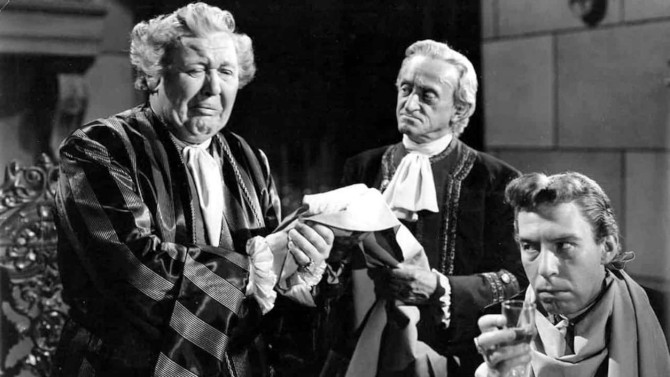
Trapped Door
A melodramatic horror thriller with more than a tinge of romance, 1951's The Strange Door, directed by Joseph Pevney, and based upon Robert Louis Stevenson’s “The Sire de Maletroit’s Door”, pairs together two all-time legends to great effect. Set outside of Paris in the 17th century, Charles Laughton is Sire Alain de Maletroit, the fattest cat in the region. Prancing around his expansive castle (adorned with a trap front door that cannot be opened from the inside – talk about strange), he is, in fact, quite like a feline – hopping up onto furniture, leaning against walls, demonstrating a playful if menacing flamboyant attitude to anyone he meets. Surrounded by a group of equally as vile ‘yes’ men, they thrive off of Maletroit’s malice.
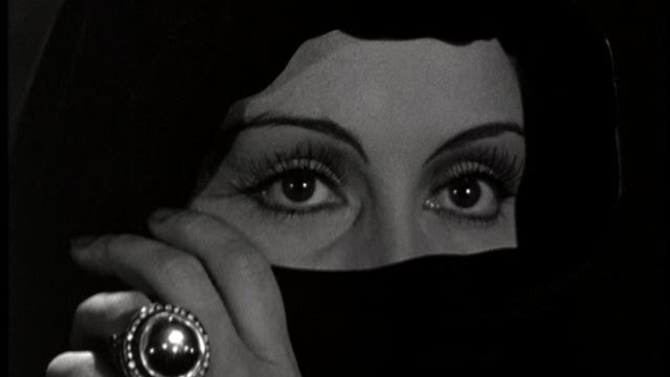
Like Father, Like Daughter
Five years after one of its two gargantuan horror hits of 1931, Universal finally released its long awaited sequel. . . rather surprisingly, without the original film’s star making a return appearance. Dracula’s Daughter (1936 – celebrating its 85th anniversary this 2021), takes the bold stance of starting up immediately after the previous film’s conclusion (90 year old spoiler alert), where Bela Lugosi’s Dracula has just been killed by Dr. Von Helsing (Victor Van Sloan). Directed by Lambert Hillyer (a late replacement for A. Edward Sutherland – who moved on after delays), we pick up with poor Von Helsing being arrested by the police for the ‘staking’ murder of Count Dracula. Transported to Scotland Yard (along with the bodies of Dracula and equally as dead Renfield) by two cops, the pretending not to be scared Hawkins (Halliwell Hobbes) and the bumbling and utterly petrified Albert (Billy Bevan), the less than dynamic duo soon lose the body of the infamous Count.
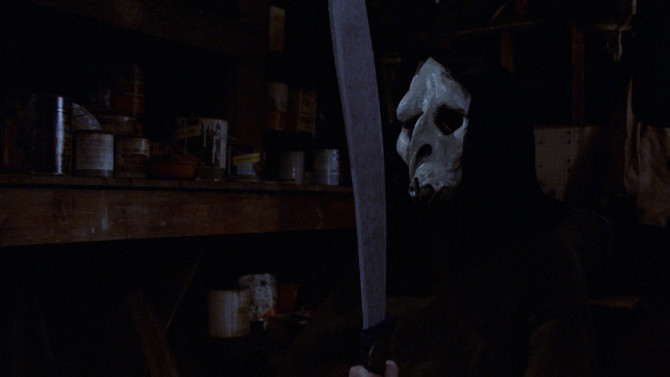
Missed the Bloody Cut: 2021 (Part 1)
A tradition every October here on Filmizon.com, I’ve decided that I would highlight some of the horror movies that did not meet my strict criteria (a rating of 7.0 or higher). . . as I realized that they are still entertaining films (horror fanatics may enjoy) that do not deserve to be like an unseen spirit, never to be noticed again – and that they are definitely worth a watch (just maybe not several re-watches). As the introduction to my month (and a bit) of horror reviews, I’ve already been powering through a plethora of horror features as we speed towards Halloween, and, instead of posting one massive selection of Missed the Bloody Cut reviews at the end of October, I have decided to break it into several parts.
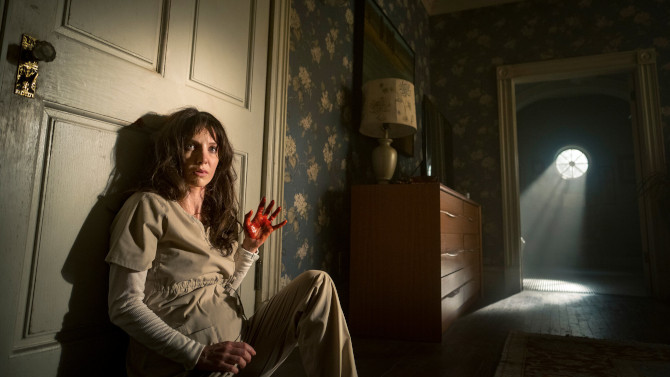
Prognosis Positive
For those of you who have seen (or will be seeing) James Wan’s new horror movie Malignant (2021), I think you’ll understand when I say I am of two mindsets when it comes to the entire piece. It has been five years since Wan has directed a film within the horror genre he has helped resurrect ‘from the dead’ – which might be a bit excessive, and Malignant might be his most divisive. Less scary and more ‘slashy’ than his more recent franchises of The Conjuring and Insidious, it carries with it a bizarre tone. . . part semi-traditional bloody horror film, part CSI melodrama (or is it spoof) – we are never quite sure if it is supposed to be tongue in cheek or taken seriously.
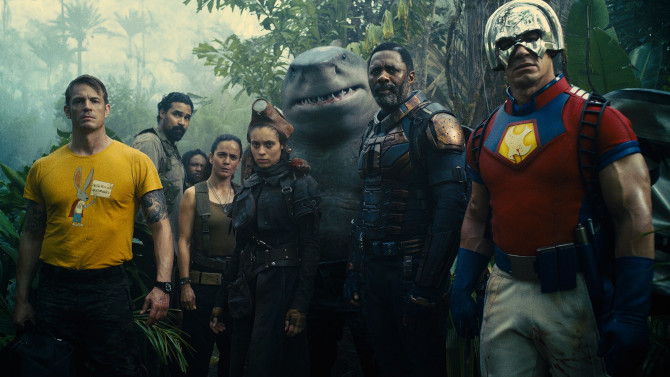
The Awkward Squad
What do you get when you hand The Suicide Squad reins over (with carte blanche, I might add) to James Gunn.? .? .? an R rated, Guardians of the Galaxy-like extravaganza that dusts curse-laden comedy over the somber DC verse, throwing pails of blood (and even a few blink and you’ll miss it pieces of male and female anatomy) at the screen to wash away its predecessor’s flat formula. Going ‘out-there’, and that’s saying something for this type of feature, Gunn’s gonzo, go-for-broke style finds intelligence spook Amanda Waller (Viola Davis) sending two teams, or should I say squads, of suiciders onto the island of Corto Maltese – a country that has just seen a coup take out their leader, replaced by a non-American ally. Wave one finds Colonel Rick Flag (Joel Kinnaman); daddy’s lil monster Harley Quinn (Margot Robbie); Captain Boomerang (Jai Courtney); long haired Savant (Michael Rooker); piecemeal T.D.K. (Nathan Fillion); Blackguard (Pete Davidson); a javelin carrying guy who is aptly named Javelin (Flula Borg); and, without further ado, a human-flesh loving walking Weasel (Sean Gunn – he also makes a cameo as prisoner Calendar Man).
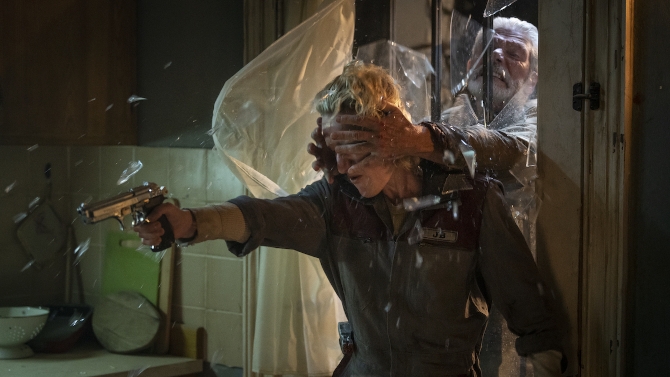
Flying Blind
Picking up several years after the original feature, Don’t Breathe 2 (2021) flips the script, with co-writers Fede Alvarez and Rodo Sayagues (though this time the latter takes over directing duties), placing the audience in the shoes of The Blind Man (rather than those who attempted to rob him in the genesis film). . . following him into a most intense scenario. In a wild, bold, and arguably controversial maneuver, Alvarez and Sayagues attempt to transform the sinister former veteran from the previous movie into something akin to an anti-hero – within the narrative, themes of rebirth and redemption can be found. Now a ‘father’ to his ‘daughter’, Phoenix – no subtlety there (Madelyn Grace), The Blind Man is now humanized with a real name, Norman Nordstrom (Stephen Lang). No spoilers on her backstory.
